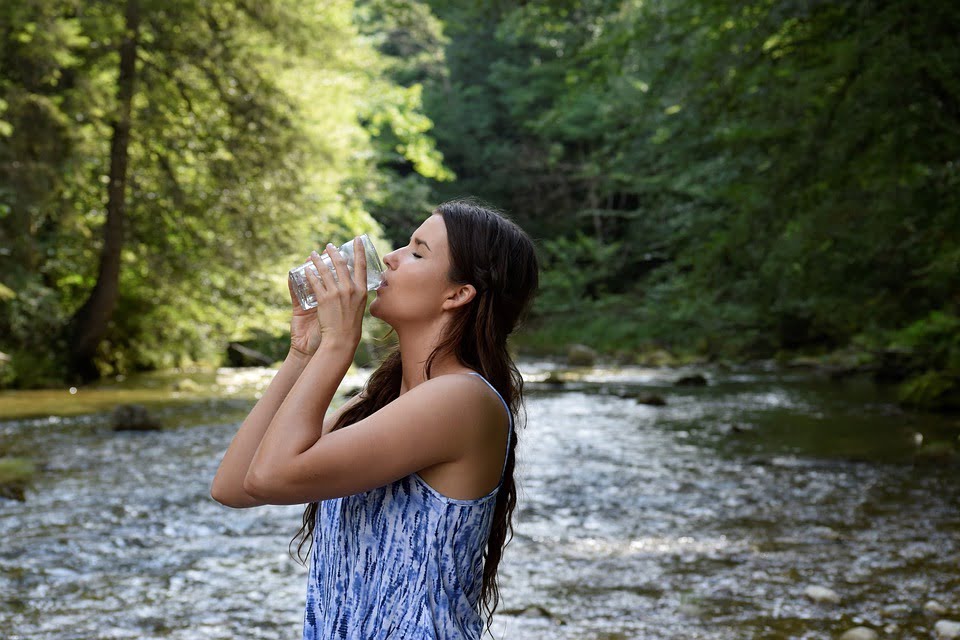It is widely believed that to maintain good health, an adult needs to drink two liters, or eight glasses, of water per day. We decided to check whether this recommendation is supported by scientific evidence.
Information about this quantity drinking water found on numerous websites, dedicated healthy image life. Supporters this approach promisethat following this regimen will speed up weight loss, prevent headaches and the formation of kidney stones, improve concentration, give elasticity to cartilage and joints, strengthen the immune system, activate brain function and even help prevent the development of breast, rectal and bladder cancer. To control fluid intake, even special mobile applications.
Water does a lot of things functions in our body: it is part of the blood, dissolves nutrients for better absorption, participates in many biochemical processes and removes waste products. The body removes water through the work of the kidneys, skin and lungs. So, with urine per day a person loses on average from 0.5 to 1.5 liters of liquid, and slightly less than 1 liter leaves our body along with breathing and in the process of sweating. Pathological conditions (prolonged vomiting or severe diarrhea) can lead to the loss of 4 or more liters of fluid per day. Main share of liquid arrives into the body through the digestive tract, some more is formed during metabolic processes. Summarizing the above losses, the required volume of 2 liters (or eight glasses) of water per day seems quite obvious. But is this true?
In fact, it is possible to establish even the most likely original source of the recommendation to drink 2 liters of water per day. This is the first time appears in a 1945 recommendation by the Food and Nutrition Commission of the US National Research Council. However, the information about 2 L was presented there in a different context. The document said adults were advised to drink 1 ml of fluid for every calorie eaten. The following consumption standards were taken as the average: 2000 calories per day for women (therefore, 2 l) and 2500 calories for men (that is, 2.5 l). Separately, the document stated that not only water is taken into account, but any liquid, including that coming from fruits and vegetables, which largely consist of water. Almost 20 years later, a similar figure surfaced in the book Nutrition for Good Health by Margaret McWilliams and Frederick Stare. They recommended drink six to eight glasses of water a day. This advice no longer took into account other types of liquids (tea, coffee, soups, juices, etc.), as well as products with a significant proportion of water in their composition.

In 2002 in the American Journal of Physiology was published a large-scale meta-review on this topic. Scientists have not found any scientific evidence for the need to drink 2 liters of water per day. At the same time, they were able to identify several dangers that await those who decide to follow this norm: water intoxication and hyponatremia (lack of sodium in the body). These conditions are extremely dangerous for the body. In particular, marathon runner Joanna Pakenham suffered due to overhydration: in the middle of the race she fainted and was taken to the hospital, where she spent almost three more days in a coma. Fixed even deaths from water intoxication.
In the same meta-review, scientists looked at the possible benefits of drinking significant amounts of water. In studies regarding the relationship between the incidence of various types of cancer, as well as coronary heart disease and daily water consumption, scientists were only able to identify a correlation, not a dependence. Moreover, the division into groups “heavy drinkers” and “little drinkers” did not take place at the border of 2 liters per day. For example, in ten years research Prerequisites for the development of bladder cancer in men, a lower risk was found in the group consuming 1440 ml of liquid (not water) per day, and the highest risk was found in those who drink less than 240 ml. And at six years old research The relationship between the amount of fluid consumed per day and the risk of fatal coronary heart disease in women has been demonstrated that the risk is lower in those who drink 1185 ml of fluid and higher in those who drink less than 474 ml. A long-term cohort study also did not reveal association between high water consumption and higher life expectancy.
Interestingly, different drinks are equally suitable for maintaining hydration and, therefore, for the prevention of various diseases, although many still believe that the caffeine contained in some drinks makes them either unsuitable or less beneficial for the body in terms of replenishing hydration. Thus, in a randomized controlled research There was no significant difference in the effectiveness of water and black tea in maintaining hydration. 2000 study considered even more options for different drinks: decaffeinated drinks containing caffeine, high-calorie drinks (for example, various sweet sodas) and no-calorie drinks were analyzed. All four groups of drinks were found to be equally suitable for replenishing the body's water balance.
Separately in 2014 checked coffee (there is an opinion that this drink does not replenish fluid in the body, but, on the contrary, leads to dehydration). Coffee in moderate doses (three to six cups per day) had the same “moisturizing” effect on the body as water, and therefore was suitable for replenishing water balance. Even alcoholic drinks demonstrate ability comparable to water to replenish fluid loss in our body. Thus, tea, coffee, sweet soda, soup, and a glass of wine at dinner can be taken into account when calculating fluid intake.
Moreover, our body is quite capable of controlling the required fluid level itself. “Control of hydration is one of the most complex mechanisms that the human body has evolved. We have a lot of sophisticated techniques to help you stay hydrated,” believes Irwin Rosenberg is from the Laboratory of Neuroscience and Aging at Tufts University in Massachusetts. Bottom line fails British Department of Health recommendation: adults are advised to drink six to eight glasses of liquid. When calculating, water, tea, coffee, milk, fruit juices and smoothies, sports and energy drinks should be taken into account.
Thus, the recommendation to drink eight glasses of pure water a day to maintain a healthy body and prevent various diseases has no scientific basis. The optimal consumption rate for an adult in a temperate climate is six to eight glasses of any liquid, including that obtained from food.

Misconception
Read on the topic:
If you find a spelling or grammatical error, please let us know by highlighting the error text and clicking Ctrl+Enter.






